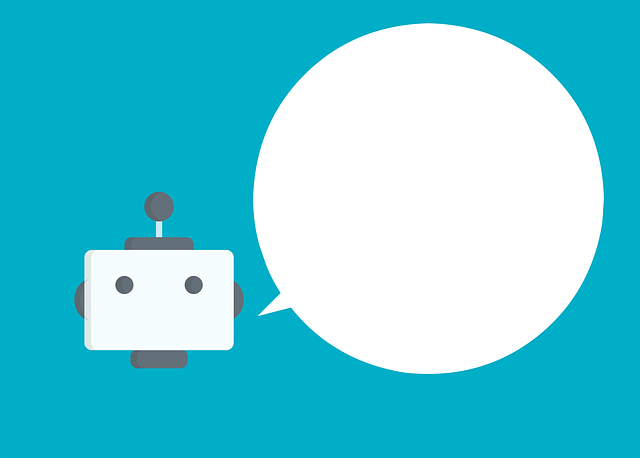In the competitive e-commerce landscape, AI chatbots are revolutionizing lead qualification by engaging customers, gathering data, and providing personalized assistance through natural language processing (NLP). They streamline processes, target high-potential leads, and boost conversion rates. Effective chatbot design includes seamless integration with e-commerce platforms and real-time data access. Regular training, database updates, and optimization enhance lead scoring accuracy. Integrating multi-modal capabilities and CRM systems further improves efficiency, enabling sales teams to focus on closing deals while chatbots handle initial lead screening.
In the dynamic landscape of e-commerce, effective lead qualification is crucial for business growth. This article explores how AI chatbots are revolutionizing this process by automating initial customer interactions and gathering valuable insights. We’ll delve into the challenges of lead qualification in e-commerce, uncover the benefits of AI chatbots, and highlight key features to consider when implementing a chatbot for optimal results. By the end, you’ll understand why these tools are becoming an indispensable asset for online retailers.
- Understanding Lead Qualification and its Challenges in E-commerce
- The Role of AI Chatbots in Streamlining the Process
- Key Features to Consider for an Effective Chatbot for E-commerce Lead Qualification
- Implementing and Optimizing Chatbot Performance for Better Results
Understanding Lead Qualification and its Challenges in E-commerce

In the dynamic landscape of e-commerce, lead qualification is a critical process that involves identifying and prioritizing potential customers to maximize sales and conversion rates. It’s about understanding customer needs, preferences, and purchasing intent early in the buyer’s journey to optimize engagement strategies. However, navigating the vast volume of leads, differentiating genuine interest from casual browsing, and qualifying prospects efficiently can be challenging. Traditional methods often rely heavily on human resources, leading to delays, inconsistencies, and increased operational costs.
Here’s where a chatbot for e-commerce steps in as a game-changer. AI-powered chatbots are designed to engage with website visitors in real-time, gathering valuable insights through conversational interactions. They can ask targeted questions, analyze customer behavior patterns, and provide personalized recommendations. This not only streamlines the lead qualification process but also enhances the overall customer experience by offering instant, tailored support. By leveraging chatbot technology, e-commerce businesses can efficiently qualify leads, focus their sales efforts on the most promising prospects, and ultimately drive higher conversion rates.
The Role of AI Chatbots in Streamlining the Process

AI chatbots play a pivotal role in revolutionizing lead qualification for e-commerce businesses. By automating initial customer interactions, these intelligent agents can efficiently filter and prioritize prospects, saving valuable time and resources. In today’s digital era, where consumers expect instant responses, AI chatbots offer a competitive edge by providing quick, personalized support, gathering essential customer data, and qualifying leads based on predefined criteria.
The process starts with a simple conversation, allowing chatbots to gauge customer intent and gather valuable insights into their needs. This initial qualification enables businesses to focus their efforts on promising leads, enhancing sales productivity. Moreover, these chatbots can be integrated throughout the buyer’s journey, offering tailored recommendations and answering common queries, thus fostering stronger customer engagement and ultimately driving conversions.
Key Features to Consider for an Effective Chatbot for E-commerce Lead Qualification

When designing a chatbot for e-commerce lead qualification, several key features stand out as essential. First and foremost, natural language processing (NLP) capabilities are vital to enable the chatbot to understand and respond to customer inquiries in a human-like manner. Advanced NLP algorithms help the chatbot interpret user queries, context, and intent accurately, ensuring meaningful interactions that can qualify leads effectively.
Additionally, integration with e-commerce platforms is crucial for seamless data exchange. A well-integrated chatbot can access product information, browsing history, customer preferences, and more, allowing for personalized conversations and accurate lead qualification based on real-time data. This integration should also support smooth handovers to human agents when complex issues arise, ensuring no potential leads are left unattended.
Implementing and Optimizing Chatbot Performance for Better Results

Implementing a chatbot for ecommerce platforms is a strategic move that can significantly enhance lead qualification processes. These AI-driven tools are designed to interact with potential customers, gather valuable insights, and filter leads based on predefined criteria. The key to reaping maximum benefits lies in optimizing chatbot performance. Regular training and updating the chatbot’s database ensure it stays current with market trends and product offerings. By feeding the chatbot with diverse customer interaction data, its ability to understand natural language queries improves, leading to more accurate lead scoring.
For ecommerce businesses, this means higher-quality leads and efficient sales pipelines. Optimizing involves testing different conversational flows, refining response times, and personalizing interactions based on user behavior. Incorporating multi-modal capabilities, such as text and voice interactions, broadens the chatbot’s appeal. Additionally, integrating it with existing CRM systems ensures seamless data flow, enabling sales teams to focus on closing deals while the chatbot handles initial lead screening.
AI chatbots are transforming e-commerce lead qualification by offering a cost-effective, 24/7 solution that enhances customer engagement. By leveraging natural language processing and machine learning, these chatbots can efficiently gather information, qualify leads, and route them to the right sales teams, ultimately boosting conversion rates. When selecting and implementing a chatbot for e-commerce, businesses should prioritize key features like conversational AI capabilities, seamless integration with CRM systems, and adaptable scripting to ensure optimal performance and drive successful lead generation strategies.
